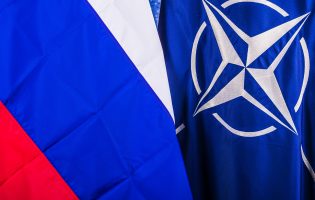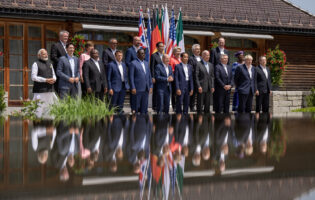After the NATO Summit
On December 8, 2010, AGI held a conference in Berlin on “Prospects and Problems for Transatlantic Defense Cooperation,” which was generously supported by the DGroup. The conference featured a range of speakers and scholars evaluating the situation and perspectives of the transatlantic defense market, while concentrating on German-American business and defense cooperation. It was pointed out that even though Germany and the U.S are facing significantly different economic and political challenges, their governments’ shared goal is the increase of export. For this reason, defense industry cooperation would not only be an important factor to strengthen the two countries’ economies, but it would also give them the opportunity to reform and rebuild their national defense industries.
A strategic approach would be to focus on Germany’s key capabilities in the area of technology and innovation, and on American markets and international corporations. If German-American defense cooperation would be revitalized, both sides would profit: American companies would have easier access to advanced German defense technology and for German companies the U.S. market would be the necessary addition to the European defense market. German companies could also greatly profit from having the U.S. as a partner for future business. Last, access to new markets such as India and Brazil would be easier for both countries.
However, some of the problems that do exist are the question of how the German defense industry will be able to survive the upcoming existential crisis resulting from drastic cuts in defense spending in Europe. As part of the current Bundeswehr reform, the transformation of the armed forces and the severe reduction of the defense budget are ongoing. Another predicament is that Germany spends almost its entire defense budget domestically and with EU partners. While the American defense budget will most likely stagnate in the coming years, the European budgets will continue to decrease. A major fear is that a fragmented and nationalized European defense industry will be increasingly unable to finance elaborate technological advancements and therefore it cannot be internationally competitive.
Most participants contended that strong transatlantic defense cooperation would profoundly promote business and export; however, they agreed that at this time it would be crucial for Germany to act more within the EU and to support a sound European defense policy in order to enhance transnational defense cooperation.
At the conference, the role of governments in this process was also discussed. Some speakers concluded that industrial developments are more important than political efforts for the defense market. The role of NATO was briefly discussed as well; some participants argued that NATO could be more actively involved through partnerships with other countries. It was also pointed out that NATO should prioritize its tasks in the twenty-first century and move forward to promote business and key technologies; as an international organization, it could serve as an important platform to discuss defense and security concerns.
As Germany increasingly favors the defense market and the United States has a strong industry looking for new opportunities, the construction of transnational defense cooperation is regarded as one of the major future projects in the German-American relationship. Hence, Germany should not only focus on the intra-European Union weapons system, but there should be a consensus to develop a joint transatlantic market. The United States would profit from accessing the best defense technology worldwide and both nations would definitely increase their military effectiveness through interoperability and partnership.







